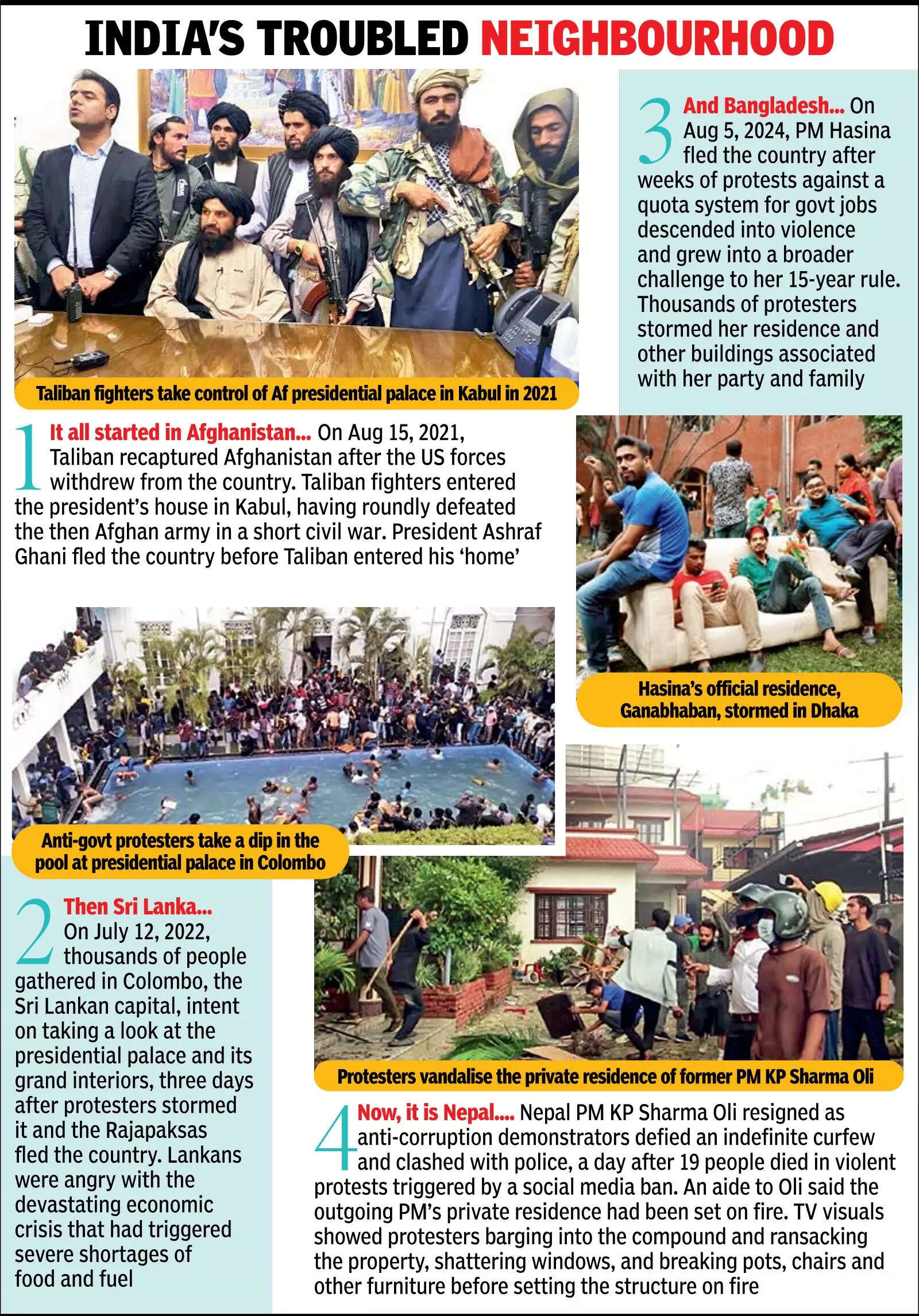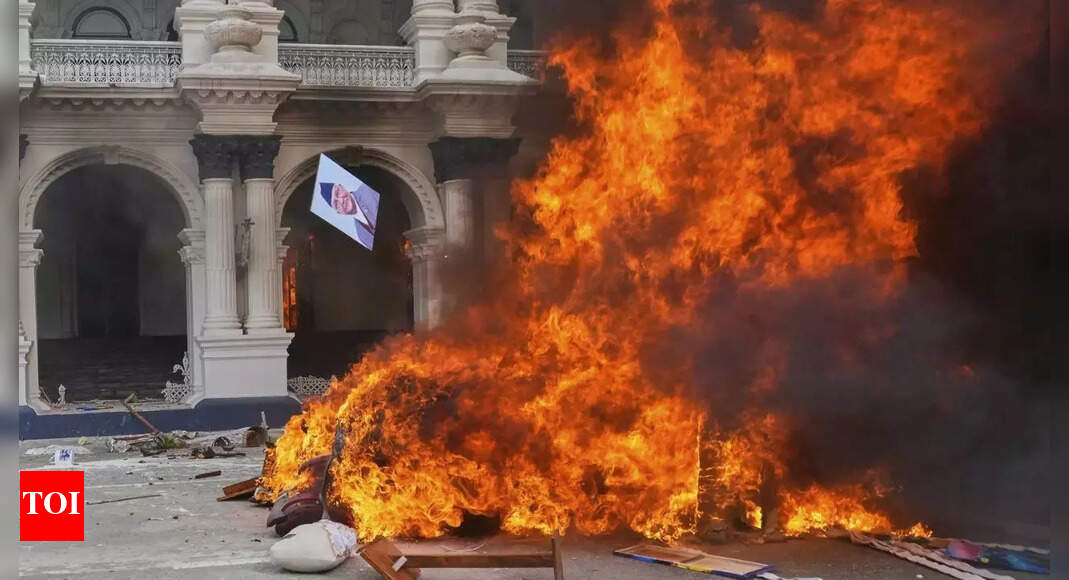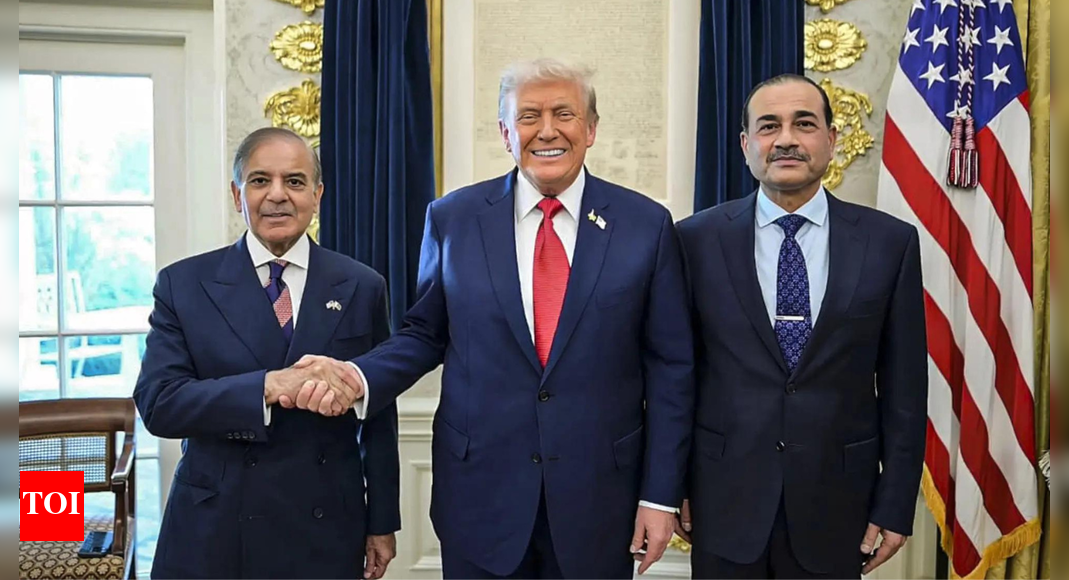[ad_1]
At about 7.15am on September 6, hours after Nepal’s ban on 26 social media platforms came into force, an official jeep carrying Koshi province minister Ram Bahadur Magar struck 11-year-old Usha Magar Sunuwar outside Harisiddhi Secondary School in Lalitpur. CCTV footage showed her flung onto the roadside as the vehicle drove away. She survived with injuries, but the image of a child abandoned by a govt convoy ricocheted across phones and set off a wave of outrage.
What might have remained an isolated accident quickly became a lightning rod for deeper discontent. K P Sharma Oli, the now ousted PM, described the incident as a “normal accident” and promised only to cover her medical expenses. For many Nepalis, the “callous and entitled” remark epitomised a political culture of impunity. “The apathy revealed in that moment eroded what little trust remained,” said Yog Raj Lamichhane, assistant professor at Pokhara University. “If a minister’s vehicle can hit a schoolgirl and the PM calls it normal, what message does that send to the rest of us?”
Poll
Do you think the ‘nepo kids’ phenomenon affects public perception of the political elite?
Also Read | Nepal ‘Gen Z’ protests: 5-time PM Deuba left bleeding; FM chased and thrashed — harrowing visuals go viralIn Kathmandu’s colleges and tea stalls, the outrage was immediate. Mira Thapa, a 20-year-old sociology student at Tribhuvan University, said the footage of Usha being left on the roadside changed the tone of conversations overnight. “They didn’t just brush off a child’s pain,” she said. “They showed us that we don’t matter. We were already angry about corruption, nepotism and no jobs. This was the spark.”

To be sure, for months frustration had been building. Nepal’s youth face one of the highest unemployment rates in South Asia. In 2024, the jobless rate among those aged 15-24 stood at 20.8%, according to the World Bank. With few opportunities at home, hundreds of thousands migrate each year to the Gulf and Malaysia, while those who remain are confronted with rising inflation, stalled infrastructure, and a political order that appears increasingly indifferent to their struggles. More than a third of Nepal’s GDP – 33.1% – now comes from personal remittances. “If we can make our country better, our youth can stay here,” said Muna Shreshta, 20, protesting outside the parliament.The grievances went far beyond one incident. Corruption scandals have dogged successive govts, while ministries and embassies remain stacked with political families. “Everywhere you look, it’s sons, daughters, nephews of politicians filling posts,” said Sushil Pyakurel, former commissioner of the National Human Rights Commission. “Ordinary citizens are left scrambling for crumbs.” For many, it felt as though opportunity itself had been captured by a narrow elite. Srijana Limbu, 24, who runs a small design studio, said, “My friends call it soft exile. Either you leave the country or you live here with no dignity. We’re educated, connected and ignored.”Among the loudest criticisms was the rise of so-called “nepo kids” – children of powerful political figures flaunting luxury lifestyles online. “Nepo kids show off their lifestyle on Instagram and TikTok, but never explain where the money comes from,” said one protester, echoing a trend that had already gained momentum before the blackout. Analysts saw the protests as inevitable. “The social media ban added fuel to grievances rooted in decades of neglect,” said Lamichhane. “Young people are no longer willing to wait. They want change now.” The chant “Oli chor, desh chhod” – Oli thief, leave the country – spread through Kathmandu’s streets, becoming both anthem and accusation. Bibek Adhikari, a history graduate, said, “We were raised on stories of democracy, but we live inside a monarchy of ministers. One surname can open every door.”Nepali Congress leader and former foreign minister NP Saud acknowledged the frustration but called for due process. “Yes, corruption and nepotism are real issues,” he said. “But they must be resolved through legal means and constitution.” But for protesters like Rachana Sapkota, 35, the issue went far beyond legality. “My humanity didn’t allow me to stay at home after seeing what happened yesterday. We want justice for those who died.”
[ad_2]
Source link




